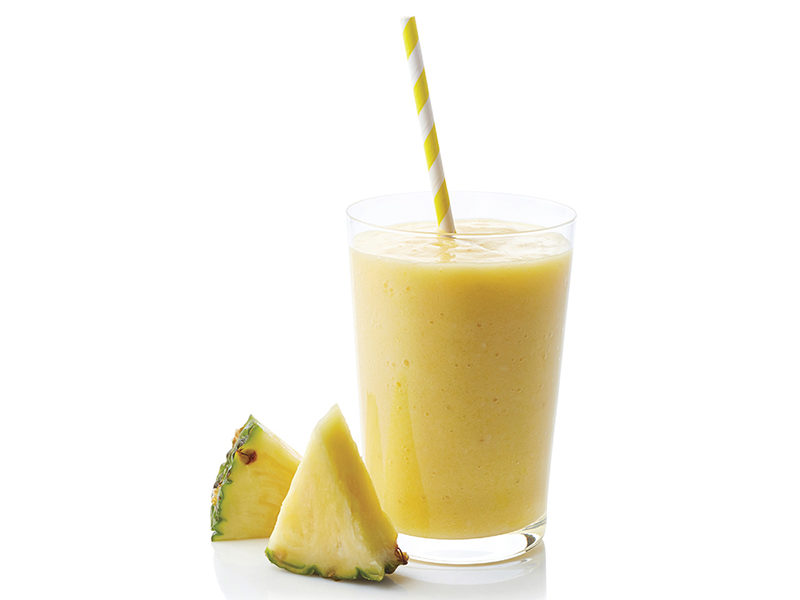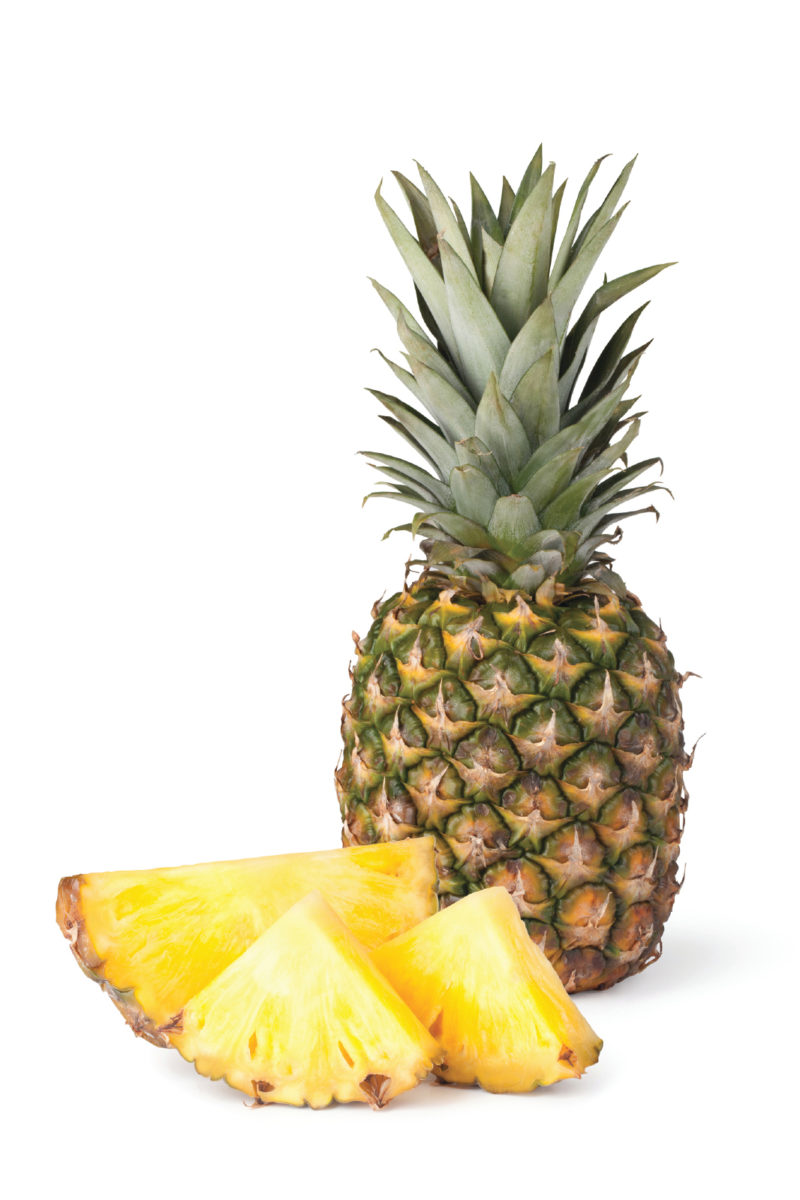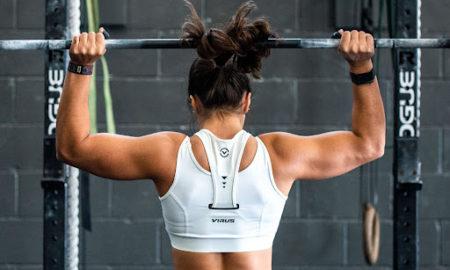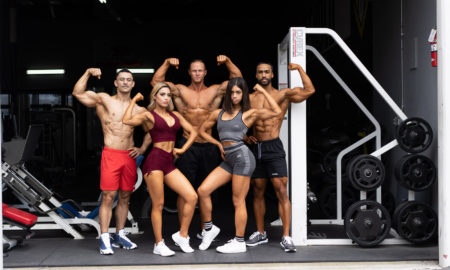

Eating this fruit can help boost your muscle gains and performance.
By Emmy Schneider-Green
Do you like pina coladas? Then you need pineapple. But, pineapples aren’t only useful for their decor-enhancing abilities or as a key ingredient of pina coladas. This fruit is a powerhouse that could provide you with a natural boost to your muscle gains and athletic performance. How so? Pineapple can promote better healing ability and increased strength and endurance.
Scientific research has been looking at pineapples for their healing and anti-inflammatory properties for years. This, combined with the pineapple’s naturally perfected stack of nutrients, makes for a fruit that can definitely play a role in increased muscle mass, heightened performance and reduced soreness and inflammation. So it definitely deserves a regular place beside your sweet potatoes, oats, chicken and other menu mainstays.
Doesn’t Fruit Have A Bad Rap?
In recent years you might have heard about the drawbacks of fruit. There will always be a diet claiming that the sweet stuff is to be avoided, and that, natural or not, sugar of all kinds is evil. While no one’s arguing against the perks of cutting down on sugar, cutting fruit out of your diet shortchanges your body of a host of micronutrients and vitamins that nature intended us to have.
Enter pineapple as the perfect example of why fruit still needs to be a part of your life, sugary or not. Beyond their spiny exterior and sugary flesh, pineapples actually pack in a wallop of nutrients, vitamins and key minerals your body requires for optimal performance. Despite being sweet, pineapples are far more than just sugar water. They’re very low in calories. A one-cup serving of fresh pineapple only clocks in at 82 calories. And, as long as you’re grabbing fresh pineapple, their sweetness is all natural, so it’s not an issue when considering the ample health benefits.
Benefit #1: Key Minerals And Vitamins
According to the FDA, high on the list of pineapple’s perks is the shot of vitamin C it delivers. Pineapple offers more than half of your recommended daily intake in a single serving! Why is that relevant to your gains and performance goals? Vitamin C isn’t only what keeps you in the gym and free of the flu. Thanks to its free-radical fighting antioxidant count, it can also help keep you clear from pesky joint pain, among other serious health issues it can help with like heart disease.
Pineapple also provides you with manganese, which is a foundational mineral key for good performance from the ground up. You can’t pack on muscle without a solid frame to start with – it’s only common sense – which is why you should know (and care) that manganese plays a critical role in the development of healthy bone structure and cartilage formation.
An enzyme called glycosyltransferases is responsible for this process in the body, but manganese is the cofactor needed to set the wheels into motion. In other words, you can thank manganese for quite literally laying the foundation for your physique. Ample manganese in your diet ensures proper development and maintenance of the skeletal system, as it helps with continued growth, along with improved metabolism of carbohydrates, lipids and amino acids. Research places pineapple at the top of the list of foods naturally containing this mineral.

Benefit #2: You Can’t Make Gains Without Carbs
Beyond its vitamin content, pineapple aids digestion though its ideal makeup of carbs, crude fiber, water and potassium. That makes it a friend in your overall quest for the ideal physique – one that’s low in body fat and high in muscle mass. After all, pineapples help to regulate and improve digestion and weight maintenance.
Any lifter already knows that it’s not just carbs, but the type and timing that move the needle when it comes to your muscle growth and maintenance, and pineapple provides an ideal choice across the board. A one-cup serving contains 22 grams of carbs along with some healthy fiber and few calories. Consuming adequate carbs both pre and post workout is key for optimal energy levels and the ability to strengthen, recover and grow. Because pineapple is a relatively high glycemic choice comprised of simple, easy-to-digest sugars, your best bet is to toss some back as a post-workout carb.
Many studies have found that consuming high glycemic carbohydrates after workouts, in conjunction with protein, enhances the formation of muscle. Think outside the box of rice and chicken (or rice cakes and protein shakes), and enjoy a livelier flavor like pineapple while upping your vitamin intake.
Benefit # 3: Delayed Soreness When Training
Excessive soreness and a body that doesn’t snap back as quickly as you’d like can be more than an annoyance. It can be a major hindrance to your training. Bromelain supplements are commonly used to treat those aches and pains. But did you know that pineapple delivers the exact same benefits, 100% naturally? How so? Bromelain is derived from pineapple!
The proteolyric enzyme itself aids our digestion and breaks down protein in the body. Since bodybuilders are typically eating protein-heavy diets, they need this boost in digestion more than most, so a diet rich with bromelain is a no brainer.
The vitamin C content in pineapple has also been studied with relation to its decreased muscle soreness after athletic performance and it’s been shown that the vitamin can have a major impact on reducing the inflammation and resulting soreness you might experience following a heavy weight session. A study published in the International Journal of Sport Nutrition and Exercise Metabolism found that men experienced a significant reduction in muscle soreness in the first 24 hours after exercising when they took a vitamin C supplement before and after working out.
No matter your training regimen or fitness goals, pineapple will do nothing but enhance your progress with its dose of nutrients and minerals, healthy carbohydrates and powerhouse bromelain enzyme. It isn’t rocket science. It’s common sense. You’ll experience a faster recovery, less taxed, sore muscles and have increased gains as a result of more productive gym time. Why wouldn’t you make pineapple a regular part of your diet?


















You must be logged in to post a comment Login